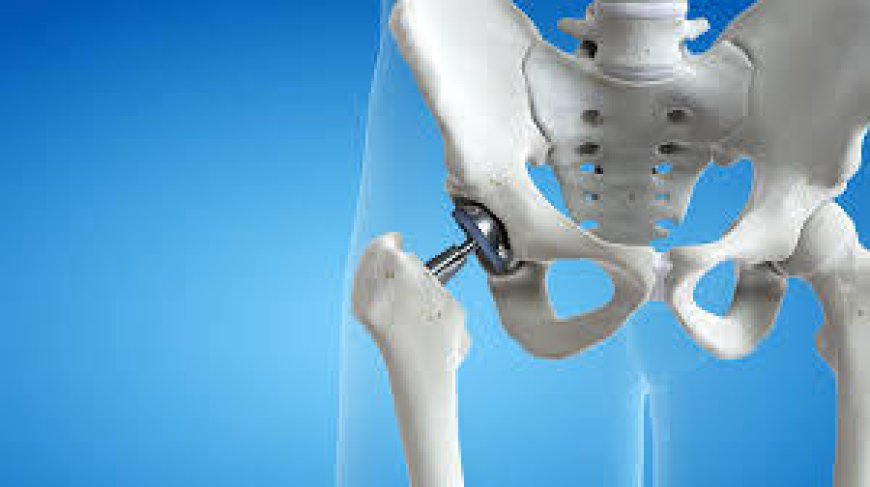The Role of Patient Advocacy in Hip and Knee Surgery Decisions in Karachi
Explore the crucial role of patient advocacy in hip and knee surgery decisions in Karachi. Discover how advocates enhance informed decision-making, facilitate communication, and provide essential support for better patient outcomes and satisfaction.

In recent years, patient advocacy has emerged as a vital component in healthcare, particularly in complex areas such as orthopedic surgery. In Karachi, where access to quality healthcare can vary, the role of patient advocates becomes even more significant when it comes to making informed decisions about hip and knee surgeries. This blog explores the importance of patient advocacy in these surgical decisions and how it can enhance patient outcomes.
1. Understanding Patient Advocacy
Patient advocacy involves supporting patients in navigating the healthcare system, ensuring their rights are respected, and helping them make informed decisions about their care. Advocates serve as a bridge between patients and healthcare providers, facilitating communication and empowering patients to voice their concerns and preferences.
2. Informed Decision-Making
Hip and knee surgeries, such as hip replacements and knee arthroplasties, are major procedures that require careful consideration. Patient advocates play a crucial role in ensuring that patients fully understand their options, risks, and benefits. They provide valuable information about:
- Surgical procedures: Explaining different types of surgeries, techniques, and technologies available.
- Recovery expectations: Outlining what patients can expect post-surgery, including rehabilitation and potential complications.
- Alternatives to surgery: Discussing non-surgical options that may be viable, such as physical therapy or lifestyle changes.
3. Navigating the Healthcare System
Karachi's healthcare landscape can be complex, with various public and private institutions. Patient advocates help patients navigate this system by:
- Connecting with specialists: Referring patients to qualified orthopedic surgeons who specialize in hip and knee surgeries.
- Understanding insurance coverage: Assisting patients in understanding their health insurance policies, including what procedures are covered and any out-of-pocket costs they may incur.
- Coordinating appointments: Helping schedule consultations and follow-up appointments to ensure continuity of care.
4. Enhancing Communication with Healthcare Providers
Effective communication is essential for successful surgical outcomes. Patient advocates facilitate discussions between patients and their healthcare providers, ensuring that patients' concerns and preferences are clearly communicated. This can include:
- Preparing questions: Helping patients prepare questions to ask their surgeons about the procedure, risks, and recovery.
- Interpreting medical jargon: Translating complex medical terms into understandable language, enabling patients to make informed choices.
- Encouraging patient participation: Empowering patients to actively participate in their care decisions, fostering a sense of ownership over their health.
5. Addressing Emotional and Psychological Needs
The decision to undergo hip or knee surgery can be daunting and may come with emotional challenges. Patient advocates provide support by:
- Offering emotional reassurance: Helping patients cope with anxiety and fear related to surgery by offering encouragement and guidance.
- Connecting to support groups: Facilitating access to peer support groups where patients can share experiences and receive emotional support from others who have undergone similar procedures.
6. Fostering a Collaborative Environment
Involving patient advocates in the surgical decision-making process promotes a collaborative environment between patients and healthcare providers. This collaboration can lead to better outcomes by:
- Encouraging shared decision-making: Ensuring that patients' values and preferences are integrated into the treatment plan, leading to more personalized care.
- Building trust: Strengthening the relationship between patients and their healthcare team, which can improve patient satisfaction and adherence to treatment plans.
7. Empowering Patients Post-Surgery
Patient advocacy doesn't stop at the operating room door. Advocates continue to support patients through the recovery process by:
- Monitoring rehabilitation: Ensuring that patients follow their rehabilitation plans and attend necessary physical therapy sessions.
- Providing resources: Offering information on nutrition, exercise, and lifestyle changes that can aid recovery and enhance overall health.
8. Raising Awareness and Education
Patient advocates also play a crucial role in raising awareness about hip and knee surgeries in Karachi. They can organize workshops, seminars, and informational sessions to educate the community about:
- Preventive measures: Promoting healthy lifestyles that may reduce the need for surgery, such as exercise and weight management.
- Post-operative care: Educating patients and families on the importance of follow-up care and rehabilitation to ensure optimal recovery.
Conclusion
The role of patient advocacy in hip and knee surgery decisions in Karachi is essential for enhancing patient outcomes and satisfaction. By facilitating informed decision-making, improving communication, and providing ongoing support, patient advocates empower individuals to take charge of their healthcare journey. As the healthcare landscape continues to evolve, the integration of patient advocacy will remain critical in ensuring that patients receive the best possible care for their orthopedic needs.

 Anokshi kumari
Anokshi kumari